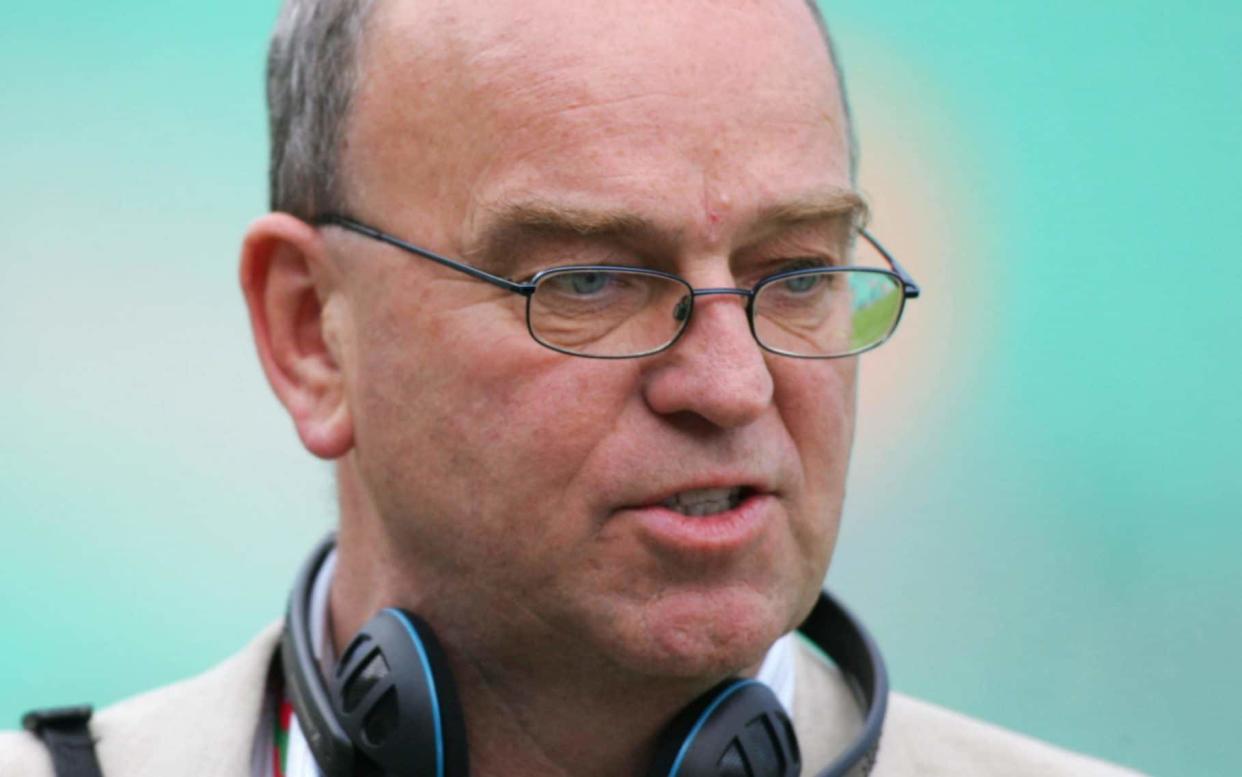Pat Murphy exclusive: 'The BBC is beleaguered. We can't stay preserved in aspic – we need live sport'

The incumbent – at time of writing – Prime Minister spoke to the Telegraph recently about her wish to reverse “Britain’s current trajectory of managed decline”. Even a stopped clock gives the right time twice a day; and Liz Truss is onto something here. Something in the cultural mood suggests that things ain’t what they used to be.
To give an example relevant to the interests of this column, many Telegraph Sport readers have told us that the recent decision by the BBC to axe the football results on Saturday’s radio programme Sports Report was the latest bit of evidence that the country is going to the dogs. But Sports Report stalwart Pat Murphy, in a lovingly curated, profoundly researched new book about the history of the show, and on the phone to this writer the other day, launches a spirited defence that not all change is for the worse.
Sports Report began in 1948 on the Light Programme, and there it was on my iPad on Saturday: the unmistakable signature tune, Mark Chapman, a brisk, authoritative, comprehensive round-up of the day’s sporting events, scores and stories in 30 minutes. No classified results, but Chapman instead rattling through them while relaying the key information from each league. “It is progress, it is evolutionary,” Murphy says.
“If we remained preserved in aspic, people would be criticising us for being stuck in a time warp. If you listen to Sports Report from 10 years ago, it sounded very different.”
He explains that, with a Premier League match kicking off at 5.30pm, the BBC “has to compete for, and be seen to compete for, live commentary rights because live football commentary drives audiences. We at the BBC are beleaguered: if we start dropping listeners or viewers by the cartload then people say, ‘What is the point of the licence fee?’ The consequence of that is how to get everything into a shortened programme and that is a dilemma.”
Murphy writes that 5 Live Sport will get around 1.5 million listeners on a Saturday afternoon, more than BBC TV’s Final Score, and more than Jeff Stelling’s Soccer Saturday. “We blow that out of the water, despite the massive coverage Jeff’s programme gets in the media,” he notes. So, while between one or two million sports fans obviously feel that the BBC is doing something right with Sports Report, one man who has been less than fully gruntled with Auntie of late is Mark Lawrenson, whose explanation for the ending of his own long association with the corporation was “Well, I’m 65 and a white male, so you know…”
Murphy, however, makes a fair point. “I have great respect for Mark and he is perfectly entitled to his views, but I would just point out that I am 10 years older than him and I have done 41 years on Sports Report,” he says.
Those decades of experience shine through in this book, which traces the show’s history in splendid, rich detail, with contributions and well-wishers as diverse as Lord Coe, Tim Rice and Joe Root all explaining what has given the programme its particular magic. Murphy picks out highlights including James Alexander Gordon finding out that he had won £52,000 on the football pools results that he had just read out, and Muhammad Ali himself introducing the results from Malaysia, when he was there in 1975 to fight Joe Bugner.
The ambition, Murphy said, is for the show to reach its centenary; the fear is that 3pm kick-offs might squeeze it yet further if “the TV companies continue wrapping their tentacles around the Saturday game”. For the time being, it marches on, evolving as all life must do but, perhaps, somewhat diminished without the poetic, comforting liturgy of the full classified check.
BBC Sports Report: A celebration of the world’s longest-running sports radio programme, by Pat Murphy, and published by Bloomsbury, is out now

 Yahoo Movies
Yahoo Movies 
